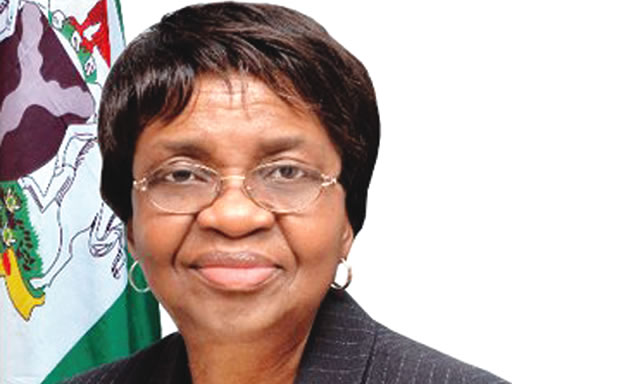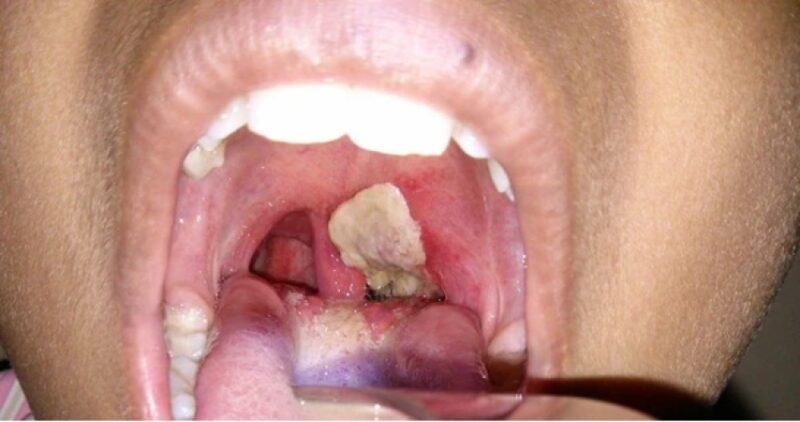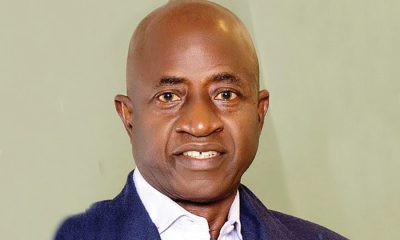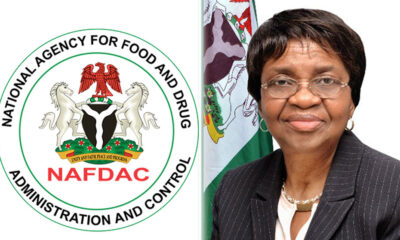Health
Nigeria okays use of India-made Oxford malaria vaccine

FG approves Oxford malaria vaccine
The Federal Government has granted approval for the use of R21/Matrix malaria vaccine developed by scientists at Oxford University.
Director-General of the National Agency for Food and Drug Administration and Control (NAFDAC), Mojisola Adeyeye, disclosed this in Abuja on Monday.
Nigeria has thus become the second country in Africa, after Ghana, to approve the vaccine manufactured by the Serum Institute of India Pvt Ltd.
The vaccine is said to be 80 per cent effective. The only vaccine currently endorsed for malaria by the World Health Organisation (WHO) is the RTS, S/AS01 (RTS,S) vaccine which is 29 per cent effective in preventing severe malaria.
Adeyeye said at Monday’s press briefing, “The National Agency for Food and Drug Administration and Control (NAFDAC) in exercising its mandate as stipulated by its enabling law, NAFDAC Act CapN1, LFN 2004, is granting registration approval for R21 malaria vaccine.
“The vaccine is indicated for prevention of clinical malaria in children from five months to 36 months of age. The storage temperature of the vaccine is 2-8 °C.”
She said NAFDAC received the dossier of the R21 and subjected it to independent review by experts from Nigeria’s tertiary institutions and the agency’s in-house vaccine review committee.
The director-general added that a joint review was then called after the team assessed the vaccine as “adequate” and the in-house committee also assessed it as “satisfactory”.
She said, “Overall, the R21 malaria vaccine dossier complied substantially with best international standards with which the dossier was benched-marked as mentioned above. The joint review committee concluded that the data on the R21 malaria vaccine were robust and met criteria for efficacy, safety, and quality.
“It was also adjudged that the vaccine’s known and potential benefits outweigh its known and potential risks, thereby supporting the manufacturer’s recommended use.
“A provisional approval of the R21 malaria vaccine was recommended and this shall be done in line with the WHO’s malaria vaccine implementation guideline.
“While granting the approval, the agency has also communicated the need for expansion of the clinical trial conducted to include a phase 4 clinical trial/pharmacovigilance study to be carried out in Nigeria.
“The brief on the approval of the R21 Malaria vaccine has been communicated to the minister of health and national Primary Health Care Development Agency for appropriate actions toward immunisation in the respective population.”
Health
1,319 died of Diphtheria in Nigeria, says NCDC

1,319 died of Diphtheria in Nigeria, says NCDC
The Nigeria Centre for Disease Control and Prevention (NCDC) has confirmed that the ongoing diphtheria outbreak in the country has claimed 1,319 lives.
The alarming figure was disclosed in the latest situation report from the National Diphtheria Emergency Operations Centre (EOC), published on the agency’s official website.
Diphtheria, a highly contagious bacterial infection caused by Corynebacterium diphtheriae, primarily affects the mucous membranes of the throat and nose.
The bacteria produce a dangerous toxin that can cause severe complications such as breathing difficulties, heart failure, and nerve damage.
According to the NCDC, more than 42,000 suspected cases have been recorded across 37 states since 2022. The latest report covers epidemiological week 10 of 2025 and highlights ongoing challenges in controlling the outbreak, including low vaccination coverage, inadequate laboratory capacity, and delays in confirming cases,” the agency stated.
Kano State accounts for 75% of confirmed cases, with 18,108 out of 25,812 recorded in the country. Other high-burden states include Bauchi with 2,334 cases, Yobe with 2,408 cases, and Katsina with 1,501 cases.
READ ALSO:
- TUC backs NYSC member for criticising Tinubu administration
- Governors lobby Tinubu over direct allocation to LGAs
- Peace deal must bar Ukraine from Nato, Russian official says
Out of the 42,642 suspected cases reported, 25,812, or 60.5%, have been confirmed, including 396 laboratory-confirmed cases, 216 epidemiologically linked cases, and 25,200 clinically compatible cases. A total of 7,769 cases, representing 18.2%, have been discarded, while 3,591 cases, or 8.4%, remain pending classification. Another 5,470 cases, making up 12.8%, have an unknown classification.
The confirmed cases are spread across 184 Local Government Areas in 26 states. Kano, with 18,108 cases, has the highest number, followed by Bauchi with 2,334 cases, Yobe with 2,408 cases, Katsina with 1,501 cases, Borno with 1,161 cases, Jigawa with 53 cases, Plateau with 119 cases, and Kaduna with 44 cases. These states together account for 99.7% of all confirmed infections.
The NCDC reported that the overall case fatality rate stands at 5.1%, meaning that one in every 20 confirmed cases results in death. However, some states have recorded significantly higher mortality rates. Kaduna has a fatality rate of 58%, Plateau 48%, Lagos 83 per cent, and Adamawa 80%.
In the latest reporting week, 23 new suspected cases were identified, 20 in Lagos and three in Katsina. However, none have yet been confirmed, with 56.5% of cases still unclassified due to delays in laboratory testing.
To curb the outbreak, the NCDC stated that the federal government has launched reactive vaccination campaigns in high-burden states and intensified community engagement efforts, particularly through traditional and religious leaders.
The agency urged the public to ensure they are vaccinated and to seek medical attention immediately if they experience symptoms such as sore throat, fever, or difficulty breathing.
1,319 died of Diphtheria in Nigeria, says NCDC
Health
NAFDAC uncovers syndicate scamming foreign firms with fake documents

NAFDAC uncovers syndicate scamming foreign firms with fake documents
The National Agency for Food and Drug Administration and Control (NAFDAC) has uncovered a fraudulent syndicate impersonating the agency to scam foreign companies using fake documents.
The agency announced the discovery in a statement by Prof Mojisola Christianah Adeyeye FAS, its Director General, following a petition from Thani Almaeeni Trading Group, Abu Dhabi, UAE, which fell victim to the scam.
It was revealed that the syndicate is being led by one Ikoro Mang Ifendu who was arrested on February 7, 2025, in Aba, Abia State for allegedly defrauding foreign firms by posing as a NAFDAC official.
“Mr. Ikoro Mang Ifendu of 26, Park Road, Aba Abia State, born on the 2nd of January, 1973, was arrested on the 7th of February 2025 at Ogborn Hills, Aba, Abia State in a case of alleged fraud and obtaining huge funds by false pretence from unsuspecting foreigners that cuts across various countries as a NAFDAC Staff. He is a native of Amamba Village, Abiriba in Ohafia LGA, Abia State. His level of education is SSCE and he deals in clothing materials. The suspect is in our custody and is cooperating with the investigation,” the agency stated.
How the syndicate operated
NAFDAC disclosed that the syndicate used a sophisticated three-pronged scheme involving a buyer, a bank, and a lawyer. First, a buyer would contact foreign firms to purchase goods for importation into Nigeria.
READ ALSO:
- Naira strengthens, gains N29.89 against US dollar
- EL-Rufai, police clash over ex-commissioner’s arrest
- How to lower fuel consumption of your car
The company would then be introduced to a bank, where they were informed that NAFDAC approval was required for transactions. A lawyer would subsequently be introduced, claiming to facilitate NAFDAC certification for a fee. Fraudulent receipts and counterfeit NAFDAC certificates were issued to victims.
The fraudulent operation extended across multiple banks and accounts. Investigations revealed that the group managed 15 domiciliary and 5 local accounts in seven Nigerian banks, with an inflow of over $950,000 into Nigerian accounts and $450,000 into offshore accounts in Cotonou, Benin Republic. Even after Ifendu’s arrest, foreign victims continued to send money, with a recent alert of $75,000 received in one of the accounts.
Fake documents used in the scam
The documents used to deceive foreign companies included:
- A counterfeit Certificate of Registration for Dried Fish (Seafood) under the NAFDAC Registration No. A2-7059, issued to Thani Almaeeni Trading Group.
- Fake revenue receipts, including a N6,687,000 receipt dated November 28, 2024, and another N20,900,000 receipt dated December 13, 2024.
- A forged processing requirement document for $13,785, purportedly signed by a former NAFDAC director who retired a year earlier.
- Fraudulent Swift Advice copies, including a $1,990 transaction to Rosemary Obosi and a $3,000 transaction to Ifendu.
- A telegraphic transfer record showing USD 132,972.84 sent to Citycode Savings & Loans, Lagos, on December 24, 2024.
The fraudsters also used letterheads falsely to identify themselves as HALI & CO Chambers, operated by Ifendu and Obosi.
Foreign companies affected
- Aside from Thani Almaeeni Trading Group, other victims identified include
- Japan Long Tie (China) Co. Ltd, Jinan, China (importation of condoms
- BEYOND-Korea, USA
- Aquaforest SP, Poland (drinks and vegetable oil registration)
- Nomea srl, Italy
- Tianyan Filter Cloth Co. Ltd, China
- Siam Canadian China Ltd, China (frozen onion spices)
Case transferred to EFCC
Following NAFDAC’s findings, the case will be transferred to the Economic and Financial Crimes Commission (EFCC) for further investigation. The probe will extend beyond NAFDAC-regulated products to track assets acquired through fraudulent activities.
“This investigation will invoke POCA [Proceeds of Crime Act] on all the assets illegally acquired in the course of these fraudulent activities,” NAFDAC stated.
NAFDAC has warned businesses against engaging consulting firms claiming to facilitate product registrations.
The agency advised firms to verify all NAFDAC-related registrations through its official portal: https://registration.nafdac.gov.ng/
NAFDAC uncovers syndicate scamming foreign firms with fake documents
Health
Diphtheria outbreak: Lagos begins vaccination at King’s College

Diphtheria outbreak: Lagos begins vaccination at King’s College
The Lagos State Government has launched a diphtheria vaccination drive at King’s College, Victoria Island Annexe, following an outbreak of the disease.
The state health authorities have activated emergency measures to contain the spread and protect students.
In a statement by the state’s ministry of health, the Commissioner for Health, Prof. Akin Abayomi, confirmed that an Emergency Operations Committee (EOC) has been set up to contain the outbreak and prevent further spread.
“The Lagos State Government has activated its Emergency Response Committee, following the outbreak of diphtheria in the boarding house of King’s College, Victoria Island Annexe,” the statement read.
Newstrends earlier reported that parents raised alarm over the situation, questioning the school’s response and sanitation standards.
According to Abayomi, the index case was a 12-year-old student who presented with a sore throat and fever at the school clinic on February 22. He was referred to the Lagos University Teaching Hospital (LUTH), where he was diagnosed with diphtheria and treated with antibiotics and a full dose of diphtheria antitoxin serum.
“Despite the timely intervention, the boy succumbed to progressive and irreversible inflammation of the heart (myocarditis) on the 6th of March. Myocarditis is a severe and recognized complication of the bacterial infection caused by the toxin,” Abayomi said.
READ ALSO:
- I’m still in APC — Fayemi
- El-Rufai has strengthened our ranks – SDP chairman
- Amnesty seeks justice for Minna footballer shot dead by ‘drunk policemen’
He further disclosed that 34 close contacts of the deceased student were placed under observation, out of which 14 developed symptoms consistent with diphtheria.
“Of these, 14 have developed symptoms consistent with diphtheria. In response, the affected students were transported to the Children’s Emergency Unit at Lagos University Teaching Hospital (LUTH), where they were screened by health professionals,” he added.
Out of the 14 students examined, 12 were diagnosed with early signs of diphtheria and admitted for treatment. The Commissioner assured that all 14 symptomatic students are responding well to treatment, and no new cases have been recorded.
Following a preliminary inspection of King’s College Annexe, health officials identified areas needing improved infection prevention and control measures.
Consequently, the state government, in collaboration with federal health agencies, has commenced a targeted vaccination campaign for all students in both the boarding facility at Victoria Island Annexe and the primary academic campus at Igbosere Main School.
The Lagos State Government also noted that the World Health Organization (WHO), Nigeria Centre for Disease Control (NCDC), and National Primary Health Care Development Agency (NPHCDA) have been notified and are working with the Lagos State Government to coordinate an effective response.
The state is currently distributing information leaflets to healthcare facilities detailing diphtheria symptoms, prevention, and early treatment options.
A public health announcement is being prepared to sensitize Lagosians on the outbreak, urging them to watch for symptoms such as sore throat, fever, difficulty in breathing, and swollen neck glands.
Diphtheria outbreak: Lagos begins vaccination at King’s College
-

 International3 days ago
International3 days agoUK announces new passport application fees starting April 2025
-

 metro1 day ago
metro1 day ago‘We’re not hiring,’ NNPC denies viral recruitment adverts
-

 metro12 hours ago
metro12 hours agoNatasha: Court blocks recall attempt, stops INEC
-

 metro2 days ago
metro2 days agoMore trouble brews in Rivers as Ijaw congress considers self-determination option
-

 metro3 days ago
metro3 days agoCourt lifts order stopping Senate probe on Natasha Akpoti
-

 Sports13 hours ago
Sports13 hours agoOdegbami speaks on Osimhen breaking his 44-year goals record
-

 metro3 days ago
metro3 days agoMohbad’s brother, Adura, arrested by police in Lagos
-

 metro3 days ago
metro3 days agoTanker explodes on Abuja bridge, many feared dead, 30 vehicles burnt







